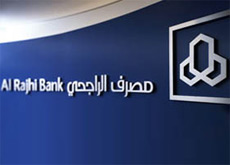 On Behalf of 
Business & Finance Club - Finance & Investment - Riyadh: Saudi Arabia and Malaysia have set out a new vision of relationship in Islamic finance, money market and trade. Al-Rajhi Bank is currently discussing plans to tie-up with a Malaysian entity to develop sukuk, while Khazana Malaysia, the Malaysian government's investment arm, has invested 10 percent in Jadwa Investment and Maybank, Malaysia's largest bank.
This was disclosed by Raja Nazrin Shah, crown prince of Perak (Malaysia), in an interview with Arab News here on Friday. Shah said: "Cagamas Berhad, our mortgage corporation and securitization house, is currently collaborating with Al-Rajhi Bank to develop the first-of-its-kind sukuk that is not only widely accepted and tradable in the secondary market but also meets the most discerning investors' requirements."
Shah was speaking at the event organized by Malaysia International Islamic Financial Centre (MIFC). Shah, who is also the MIFC's ambassador, is currently visiting Riyadh, where he will hold official talks with senior government officials including Prince Salman, Riyadh governor, Amr Al-Dabbagh, governor of Saudi Arabian General Investment Authority (SAGIA), and SAMA (Saudi Arabian Monetary Agency) officials.
Referring to the progressively growing business relation between Riyadh and Kuala Lumpur with special reference to sukuk market, Shah said that "Malaysia has a comprehensive and well developed Islamic financial system, including a vibrant banking and Takaful sector and well-functioning Islamic capital and money markets." "Our sukuk market is the largest in the world, accounting for 62 percent of the global sukuk outstanding", he added.
He said that the Malaysian Islamic money market had incorporated an electronic exchange platform to facilitate the trading and settlement of commodities using crude palm oil for liquidity management between Islamic financial centers. Moreover, the Malaysian economy is expected to grow by 4.5 to 5.5 percent in 2010, propelled by heightened domestic demand and improvements in the external trade environment.
"The New Economic Model (NEM) of Malaysia now aims to raise per capita income to $15,0000 form the current $7,000 within 10 years," said the MIFC ambassador. Against this backdrop, he said that the Islamic finance is uniquely positioned to expand its role and presence. To this end, he referred to the MIFC, which is an initiative to promote Malaysia as an Islamic financial hub. The MIFC visit to Saudi Arabia is envisaged to further strengthen the linkages and cooperation, he added.
He called on Saudi and Malaysian institutions and officials to "make Islamic finance play a leading role in the economic development." With economic recovery beginning to take place all over the world and with Asia assuming a greater role in the global economy, the potential for growth is enormous, said Shah, while addressing a large group of Saudi and Malaysian officials, banking executives, fund managers and Takaful operators.
Referring to the growth of Asia's economies, Shah said that the emerging economies in Asia will grow on average by 6.1 percent compared to 1.3 percent of the advanced economies during 2009 and 2014. "By 2025, China is expected to overtake the US as the world's largest economy, while India has the potential to match the size of the US economy by 2050," he added.
On trade front, the Malaysian crown prince said that trade between East and West Asia has been on an upward trend. While world trade has expanded on an average by 10 percent, trade between West Asia and the rest of Asia has increased at the average of 25 percent, he said, while referring to the Muslim nations, where intra-OIC trade currently accounts for only between 10 to 13 percent of the OIC's (Organization of the Islamic Countries') global trade.
Shah, while focusing on challenges faced by Islamic finance and global financial stability, said that the new reforms would redefine the landscape of the global financial system going forward with broad implications. "For Islamic finance, the momentum of growth has remained largely uninterrupted despite recent challenges," he added, while referring to the ethical element attached to such finance.
In this context, he said that the conventional investment houses are also turning to the establishment of ethical funds in response to investor demand. The recent launch of a Christian Share Index by Stoxx in Europe is a case in point, he added
|